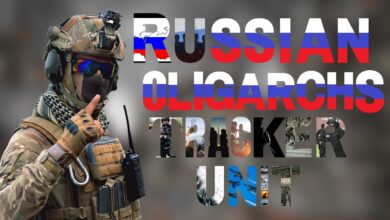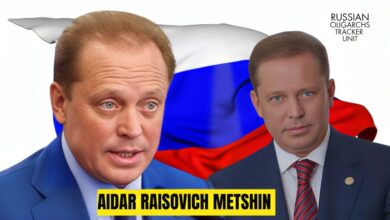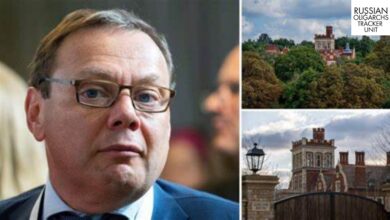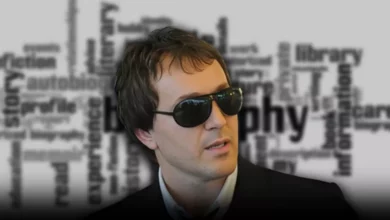Igor Shuvalov’s Biography, Controversies, and Oligarchy 2023
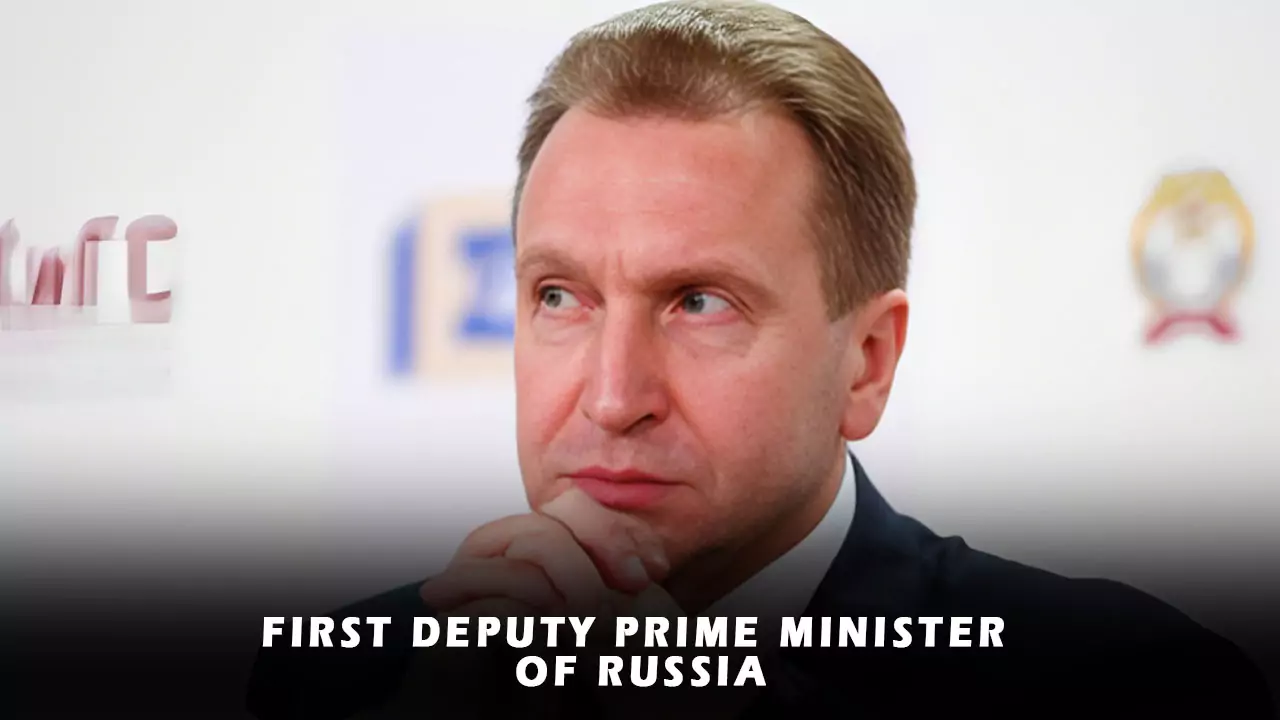
Igor Ivanovich Shuvalov (Russian: И́горь Ива́нович Шува́лов, IPA: [ˈigərʲ ɪˈvanəvʲɪtɕ ʂʊˈvaləf] is a prominent Russian politician. He holds the highest rank of First Class Active State Councilor of the Russian Federation.
As we explore Igor Shuvalov’s biography, it’s clear that his tenure as the first deputy prime minister played a pivotal role in Russia’s political landscape. In this role, Shuvalov was instrumental in overseeing the country’s budget and formulating critical economic policies, making him a central figure in Russia’s governmental structure.
From May 2012 to May 2018, he served as First Deputy Prime Minister in the cabinet of Dmitry Medvedev. He previously held a similar position in Vladimir Putin’s second cabinet. As the first deputy prime minister, Igor Shuvalov played a crucial role as the second-highest cabinet member after the prime minister, responsible for overseeing the country’s budget and formulating economic policies.
Since May 2018, he has assumed the chairmanship of VEB.RF, a national development company formerly known as Vnesheconombank.
Igor Shuvalov’s Biography
Igor Shuvalov was born on January 4, 1967, in Bilibino, Chukotka Autonomous Okrug, where his parents had relocated for work. After completing high school in Moscow in 1984, he briefly attempted college from 1984 to 1985 but later worked as a laboratory assistant at the Ekos Research Institute.
From 1985 to 1987, he fulfilled his mandatory military service in the Soviet Army and subsequently enrolled in a technical school. He later pursued a degree in jurisprudence at Moscow State University’s Faculty of Law, graduating in 1993. Following graduation, Igor Shuvalov started his career as an attaché in the legal department of the Ministry of Foreign Affairs, focusing on developments in international law.
That same year, he became part of the ‘ALM Consulting law firm, named after its founder, Alexander Mamut, where he initially served as a senior attorney and later as a managing partner until 1997. The firm had affiliations with the Moscow Bar Association. In 1995 and 1996, Shuvalov helped to create a number of new businesses. These included the wholesale open joint-stock company (OJSC) Stalker, the real estate OJSC Fanteim, the consumer goods company RANDO JSC, and a bank consortium that worked with Channel One Russia JSC to combine the capital of banks that owned shares in Public Television of Russia JSC (ORT).
In 1997, Igor Shuvalov was appointed as the Head of the Department of the State Register of Federal Property at the State Committee of the Russian Federation for State Property Management. In this role, he was responsible for collaborating with financial institutions and representing the state’s interests on the boards of directors of companies like Rosgosstrakh and Sovcomflot. Subsequently, in January 1998, Shuvalov was named Deputy Minister of State Property. In February 1998, he joined the board of directors of Public Television of Russia.
On May 25, 1998, Igor Shuvalov was elected acting chairman of the Russian State Property Fund (RFPF), and he was officially confirmed as chairman on Sept. While at the bank, Shuvalov represented the interests of the state in various corporations.
After Mikhail Kasyanov was elected President of Russia on May 18, 2000, Igor Shuvalov assumed the position of Chief of Staff of the government as Prime Minister of Russia, but on May 28, 2003, due to conflicts with Kasyanv, he left the government. In this role, he coordinated the activities of the task force on measures to double GDP, fight poverty, and reform the military.
In October 2003, Shuvalov was appointed deputy head of the presidential administration. In 2004, he was appointed Presidential Deputy to the State Banking Council and served as Chairman of the Sovkomflot Board of Directors until July 2008. In 2005, Igor Shuvalov assumed the role of Personal Representative of the G8 Presidents, and in 2006, he became Chairman Deputy to the Organizing Committee of the Russian G8 Presidency.
On May 12, 2008, Shuvalov was appointed Russia’s first deputy prime minister. In the same year, he chairs the Commission on Small and Medium Enterprise Development, the Commission on Government Action on the Global Economic Crisis, the Far East and Transbacle Social and Economic Development Council, and the APEC Policy Committee Meetings.
Since March 19, 2009, Igor Shuvalov has served as national director of the activities of the Free States. In October 2009, he resigned from the Federal Reserve Board. In January 2010, he took over the leadership of the Government Commission on Economic Growth and Integration.
Since August 2010, Igor Shuvalov has been responsible for overseeing the efforts of senior government officials to block inquiries from Russian foreign investors. After the June 2012 appointment of Boris Titov as commissioner for entrepreneurial rights, his work remained. Igor Shuvalov took over the financial arm of the government after finance minister and deputy prime minister Alexei Kudrin resigned in September 2011. That same year, Kudrin was replaced as head of the Financial Markets Commission and Russia’s representative on the board of the Eurasian Economic Council.
On March 25, 2011, Vedomost reported on Shuvalov’s views as head of the Rights Cause political party, citing government officials and sources within the party In 2011, he led the regional electoral list of the United Russia Party as a candidate for the sixth state duma to be summoned in Primorsky Krai.
In January 2012, Igor Shuvalov took over as head of the Government Commission for Transport and Communications. On May 21, 2012, he was elected the first Vice President of the government formed that month.
On March 3, 2022, as a result of the Russian invasion of Ukraine, the United States imposed visa restrictions and froze the assets of Shuvalov, his wife, sons, and daughters.
Early Life and Education
Birth and upbringing in Bilibino, Russian SFSR
Igor Shuvalov was born on January 4, 1967, in the town of Bilibino in Chukotka Autonomous Okrug, Russia. His parents moved to Bilibino for work, and he completed high school in Moscow in 1984. Following an unsuccessful attempt at college in 1984–1985, he worked as a laboratory assistant at the Ekos Research Institute.
Bilibino, located in Chukotka Autonomous Okrug, Russia, is situated 625 kilometres northwest of Anadyr, the administrative centre of the autonomous drug. The town was established at the confluence of the Karalveyem and Bolshoy Keperveyem Rivers and lies on the border between the coniferous forest and the East Siberian Mountains’ tundra region.
Education at Moscow State University and graduation in Jurisprudence
Igor Shuvalov served in the Soviet Army and studied law at Moscow State University from 1985 to 1987. In 1993, he graduated with honours from the Law Department of Moscow Lomonosov State University, obtaining a law degree While at Moscow State University, Shuvalov took an active part in the Universiade, an international multisport event for university athletes.
In recognition of his contribution, he received a service order from the Republic of Tatarstan and was honoured as an honorary citizen of Kazan, praising his role in the city’s economic development and reputation for enhancing international relations After graduation, Shuvalov began his career by joining the Legal Department of the Ministry of Foreign Affairs, where his responsibilities included overseeing the development of international law.
Early Career
Shuvalov’s early career as a laboratory assistant
After trying unsuccessfully to enroll in college in 1984–1985, Igor Shuvalov accepted a job as a laboratory assistant at the ECOS research institute. Founded in 1983, this Moscow-based scientific research organization focuses on the development of new technologies for food, feed, and related products Shuvalov worked in the organization for one year, from 1985 to 1987 for compulsory military service in the Soviet army.
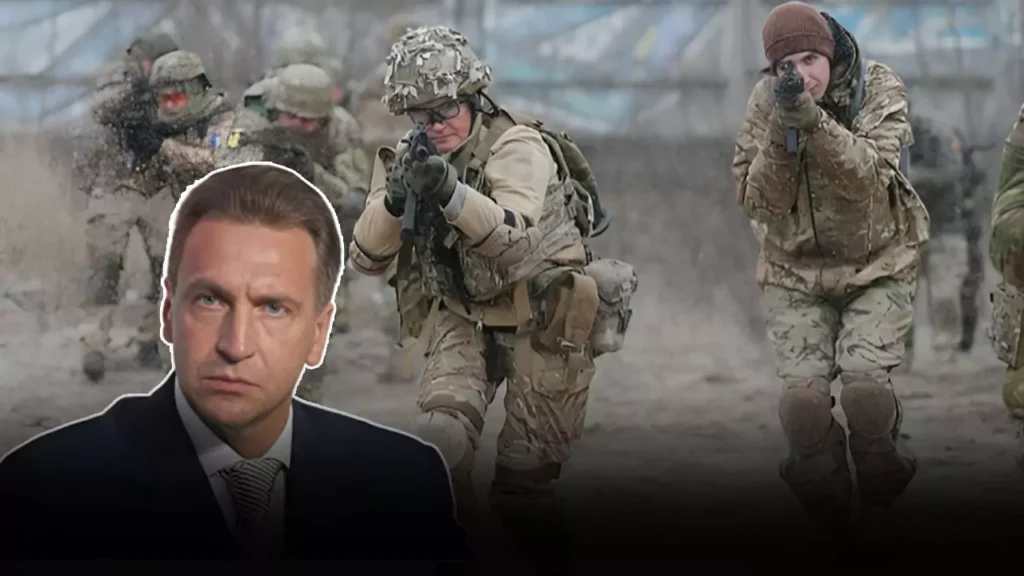
Military service in the Soviet Army
Igor Shuvalov served compulsory military service in the Soviet Army from 1985 to 1987. The Soviet Union developed a conscription system that required all male citizens to serve two to three years in the military depending on their status, such as the type of soldier drafted and the soldier’s level of education. Full-time Soviet students were allowed to postpone graduation. Those who completed the military program during their education became reservists and were discharged as private soldiers.
The Soviet army mainly recruited workers and peasants, and it was difficult to create a competent and reliable officer corps Former imperial officers were recruited into the Red Army, with some 50,000 such officers serving in the Red Army of the army until 1921 from regiments.
Military service in the Soviet Union extended beyond learning military tactics and equipment; that included political training. The Soviet Union considered military service a sacred duty for every citizen. Active military service in the Army of the Soviet Union was obligatory for all men, regardless of background, social class, race, national origin, education, language, religion, occupation, or place of residence.
Transition to the legal field and work at ‘ALM Consulting’
After his military service in the Soviet Army, Igor Shuvalov entered the legal profession. He began his career in 1993 as an assistant in the legal department of the Russian Ministry of Foreign Affairs.
During the years 1993–1995, Igor Shuvalov served as general counsel at the then newly established law firm, ALM Consulting. ALM Consulting is a Russian law firm providing legal services to businesses and individuals. It was founded in 1992 and has offices in Moscow, St. Petersburg, and London, specializing in corporate law, mergers and acquisitions, real estate and dispute resolution
Shuvalov’s lawsuits have been the focus of late. The New York Post highlighted the challenges facing the U.S., emphasizing having a lawyer handle the case. In March 2022, Shuvalov faced sanctions from the US. At the bank, there were reports that he intended to take legal action to evict him. In March 2022, The Guardian reported that the UK government approved him after pressure from Labour leader Keir Starmer.
Government Service
Shuvalov’s government career, starting with the Ministry of Foreign Affairs
Igor Shuvalov has held various roles in the Russian government since the late 1990s. Here is a summary of his government career, which began with the Ministry of Foreign Affairs:
- In 1993, Shuvalov started as an attaché in the legal department of the Ministry of Foreign Affairs, focusing on international law developments.
- In 1997, he was appointed Head of the Department of the State Register of Federal Property on the State Committee of the Russian Federation for State Property Management. His responsibilities included collaborating with financial institutions and representing the state’s interests on the boards of directors of Rosgosstrakh and Sovcomflot.
- In 1998, Shuvalov assumed the role of Deputy Minister of National Property.
- From 1998 to 2000, he served as the Chairman of the Russian Federal Property Fund.
- In 2000, Shuvalov became the Chief of Staff of the Government after Mikhail Kasyanov’s appointment as Prime Minister of Russia.
- In 2003, Shuvalov left the government and was appointed as Assistant to the President, where he coordinated a working group responsible for doubling the GDP, poverty reduction, and military reform.
- In 2008, he took on the position of First Deputy Prime Minister of Russia, initially alongside Viktor Zubkov, until 2012.
- In 2018, Shuvalov was appointed as the Chairman of Vnesheconombank.
Appointments in various government departments
The United States Constitution, under the Appointments Clause, mandates that the President, with Senate advice and consent, appoint ambassadors, public ministers and consuls, Supreme Court judges, and all other U.S. officers. Approximately 4,000 political appointment positions exist in the U.S., with about 1,200 requiring Senate confirmation. The White House Presidential Personnel Office (PPO) plays a pivotal role in overseeing political appointees and evaluating potential White House candidates.
There are two paths to serving in the U.S. Executive Branch: through a career or non-career position. Non-career roles encompass presidential appointments with Senate confirmation (PAS), non-career senior executive service (SES) appointments, and Schedule C appointments. Compared to regular executive branch employees, political appointees must abide by stricter ethics rules.
Igor Shuvalov, in Russia, has held multiple government positions since the late 1990s, including Deputy Minister of National Property, Chairman of the Russian Federal Property Fund, Chief of Staff of the Government, Assistant to the President, First Deputy Prime Minister of Russia, and Chairman of Vnesheconombank.
Contributions to economic development, small and medium-sized businesses, and response to the global financial crisis
The impact of Igor Shuvalov on economic development and small business in Russia Igor Shuvalov is a leading figure in Russian politics, has contributed significantly to economic development, especially in the small and medium-sized sectors, and played a key role in solving global economic challenges. Some notable points from his work are here:
Public investment projects: Shuvalov was instrumental in establishing public investment projects aimed at increasing economic growth and modernizing the Russian economy and his key role in this process has earned him numerous accolades.
Supporting small and medium enterprises: Shuvalov was actively involved in addressing the challenges faced by small businesses in Russia. In 2012, Prime Minister Dmitry Medvedev met with Russian bank officials and identified barriers to entrepreneurship, market dominance, and lack of access to finance as major obstacles for small businesses, and Shuvalov’s efforts focused on finding solutions to these issues.
Response to the global financial crisis: Shuvalov was central to the response to the global financial crisis. A 2010 report by the Council on Foreign Relations acknowledged the relative effectiveness of the Russian government’s actions. Measures such as bank recapitalization and the devaluation of the ruble, for which Shuvalov played a key role, have helped stabilize the Russian economy during this difficult time.
Oversight of Economic Policy: As Russia’s first vice chancellor, Igor Shuvalov was responsible for overseeing the country’s budget. During his tenure, he focused on attracting foreign investment to Russia and improving the overall business environment.
Key positions held, such as Chairman of the Russian Federal Property Fund
Igor Shuvalov has held several key government positions in Russia over the years. Here’s a summary of his career milestones:
- Head of the Department of the State Register of Federal Property on the State Committee of the Russian Federation for State Property Management (1997)
- Deputy Minister of National Property (1998)
- Chairman of the Russian Federal Property Fund (1998-2000)
- Chief of Staff of the Government (2000-2003)
- Assistant to the President (2003)
- Deputy Chief of Staff of the President’s Office (2003-2004)
- First Deputy Prime Minister of Russia (2008–2018)
- Chairman of Vnesheconombank (2018-present)
These roles reflect his extensive experience in various government departments and his significant contributions to Russia’s political and economic landscape.
Rise in Political Power
Shuvalov’s roles under Presidents Kasyanov and Medvedev
Igor Shuvalov has held various significant government positions and made notable contributions to Russia’s political landscape. Here’s an overview of his key roles:
- Chief of Staff of the Government (2000–2003):
- In 2000, Igor Shuvalov assumed the role of Chief of Staff of the Government after Mikhail Kasyanov’s appointment as Prime Minister of Russia.
- Assistant to the President (2003):
- Following a disagreement with Kasyanov, Igor Shuvalov left the government and was appointed as an assistant to the president.
- In this capacity, he coordinated a working group responsible for devising strategies to double the GDP, combat poverty, and reform the military.
- First Deputy Prime Minister of Russia (2008–2018):
- Shuvalov served as the First Deputy Prime Minister of Russia from 2008 to 2018.
- He shared this role with Viktor Zubkov until 2012, playing a pivotal role in the country’s governance.
- During his tenure, Shuvalov focused on attracting foreign investments to Russia and enhancing the nation’s business environment.
- Coordination of Federal Executive Agencies (2010):
- Starting in August 2010, Shuvalov took on the responsibility of coordinating federal executive agencies.
- His role involved addressing inquiries from both Russian and foreign entities.
- Chairman of Vnesheconombank (2018-present):
- Currently, Igor Shuvalov holds the position of chairman at Vnesheconombank.
- In this role, he oversees the state development corporation, which provides financial support for critical infrastructure projects and strategic sectors of the Russian economy.
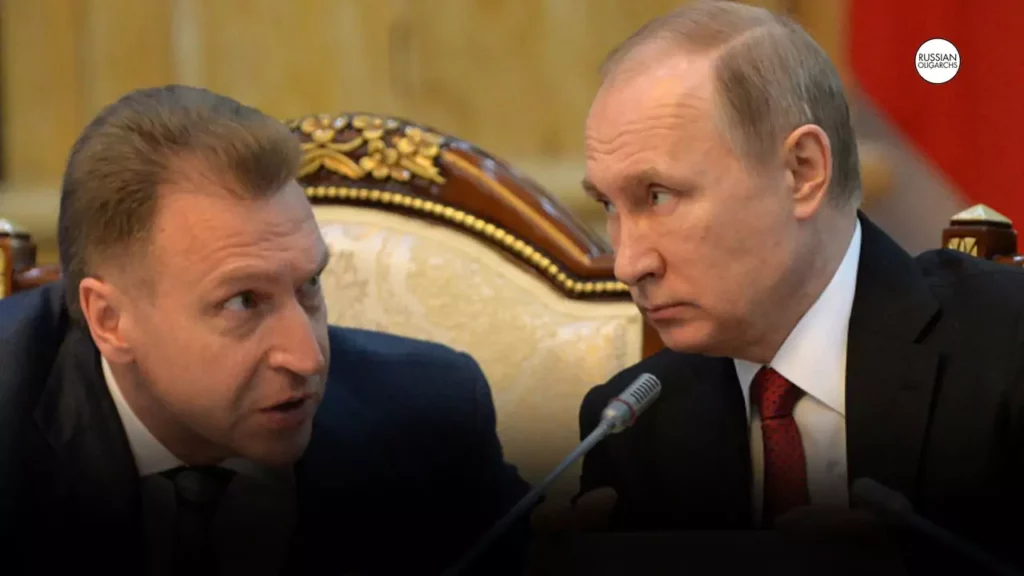
His contributions as First Deputy Prime Minister under Putin and Medvedev
Igor Shuvalov, as Russia’s first deputy prime minister, played a pivotal role in the administrations of both Vladimir Putin and Dmitry Medvedev. Here are some key highlights of his contributions during his tenure:
- Assessing the Competitive Landscape: In 2010, Shuvalov provided President Dmitry Medvedev with a comprehensive briefing on the competitive business environment within the country.
- Investment and Trade Oversight: Serving as one of Prime Minister Vladimir Putin’s most influential deputies, Shuvalov took charge of critical areas such as trade policy, investment, and privatization.
- Boosting Small and Medium-Sized Businesses: In 2015, Igor Shuvalov presented President Medvedev with updates on the progress made in implementing directives aimed at enhancing the performance of small and medium-sized businesses.
- Economic Policy Stewardship: As First Deputy Prime Minister, Shuvalov had the responsibility of supervising Russia’s economic policies. His efforts focused on attracting foreign investments and improving the nation’s business environment.
- Leading State Development Corporation: In his current role as Chairman of Vnesheconombank, Igor Shuvalov oversees this state development corporation. Vnesheconombank provides crucial funding for strategic sectors and infrastructure projects within the Russian economy.
These notable contributions reflect Shuvalov’s substantial influence on Russia’s economic and political landscape during his time in office.
Chairman of State Development Corporation, VEB.RF
Igor Shuvalov assumed the role of chairman of the national development agency VEB.RF in May 2018. In this position, he is responsible for the financial activities of the agency in important sectors of the Russian economy, especially the infrastructure of the industry. Notably, in August 2023, he held a working meeting with President Putin to discuss the ongoing operations of the Bank.
It should be noted that in March 2022, the U.S. bank chose Igor Shuvalov because of his position as a leader, officer, chief of staff, or member of the board of directors of the Russian Federation.

Shuvalov’s role and responsibilities in this post
In his role as Chairman of the State Development Corporation VEB.RF, Igor Shuvalov is responsible for overseeing the corporation’s financing of strategic sectors of the Russian economy and infrastructure projects. His key responsibilities include:
- Coordinating with federal executive agencies to address inquiries from both Russian and foreign stakeholders.
- Providing the President with insights into the bank’s priority areas of operation within the global context
- Holding work meetings with President Putin to discuss the bank’s activities.
- Supervised the execution of the bank’s policies and strategies.
- Ensuring the alignment of the bank’s actions with the nation’s economic development objectives.
- Managing the corporation’s relationships with other financial institutions and stakeholders
Despite his contributions to the corporation, Shuvalov’s career has faced allegations of corruption and involvement in fostering a system of state corruption.
National Coordinator of the Affairs of the Commonwealth of Independent States
Igor Shuvalov, in his capacity as national coordinator of the Commonwealth of Independent States (CIS), played a key role in organizing official activities regarding inquiries from Russian foreign companies. Specific responsibilities in those areas
Shuvalov’s role as state mediator was established in 2008 with the adoption of the law on state mediation for CIS member states. This role functions as a permanent, operational, monitoring, and administrative unit within the CIS.
World Summer Universiade 2013
Igor Shuvalov played a pivotal role in organizing the 27th World Summer Universiade, held in Kazan, Russia in 2013. Here are some of his contributions and the impact of the Universiade on Kazan’s development:
Contributions:
- In 2009, Shuvalov assumed the leadership of the organizing committee for the 27th World Summer Universiade.
- Under his guidance, 27 new stadiums were constructed, with a total of 64 venues, 36 of which were purpose-built for the 2013 Summer Universiade.
- Shuvalov effectively coordinated the efforts of federal executive agencies in addressing inquiries from both Russian and foreign entities.
Impact:
- The Universiade left a profound impact on the development of Kazan and its surrounding region.
- The event significantly improved the quality of life for citizens and enhanced the region’s appeal to tourists.
- Environmental improvements included better air and water quality, more effective waste management, and enhanced energy efficiency.
- The local economy benefitted from increased investments in infrastructure and the creation of new job opportunities.
- The Universiade contributed to raising the profile of Kazan and Russia on the international stage.
In conclusion, the 27th World Summer Universiade had a substantial impact on the development of Kazan and its neighboring areas, with Igor Shuvalov playing a crucial role in its organization.
FIFA World Cup 2018
In December 2009, Igor Shuvalov was appointed to lead the organizing committee supporting Russia’s bid to host the FIFA World Cup in 2018/2022. The bidding process involved countries like Russia, England, Belgium, Holland, Spain, and Portugal, who presented their bids in Zurich on December 2, 2010. Shuvalov represented Russia as part of the delegation, alongside the Minister of Sports, Tourism, and Youth Policy, Vitaly Mutko, and football player Andrei Arshavin. Following the presentations, the FIFA Executive Committee, consisting of 22 members, conducted a secret ballot, resulting in Russia being selected as the winner.
In January 2011, Vyacheslav Koloskov, the honorary president of the Russian Football Union, suggested that Igor Shuvalov should lead the organizing committee for the 2018 World Cup. As part of the government formed in May 2012, Shuvalov’s responsibilities include coordinating the organization, preparation, and execution of the 2018 World Cup, which encompasses the development of the necessary transportation infrastructure.

In March 2013, it was revealed that the region had requested 540 billion roubles for preparations related to the World Cup in 2018. However, Igor Shuvalov, the First Deputy Prime Minister of the Russian Federation, deemed this amount excessive. Consequently, it was decided to allocate funds exclusively for stadium construction, training facilities, and the refurbishment of city airports and the connecting roads to these stadiums. Expenditure on city infrastructure and road transport networks was excluded from the proposed preparation program. The regions were expected to secure the necessary funds for these purposes, as they did not fall under Russia’s obligations to FIFA.
Controversies
Shuvalov’s involvement in financial controversies, including offshore investments and loans
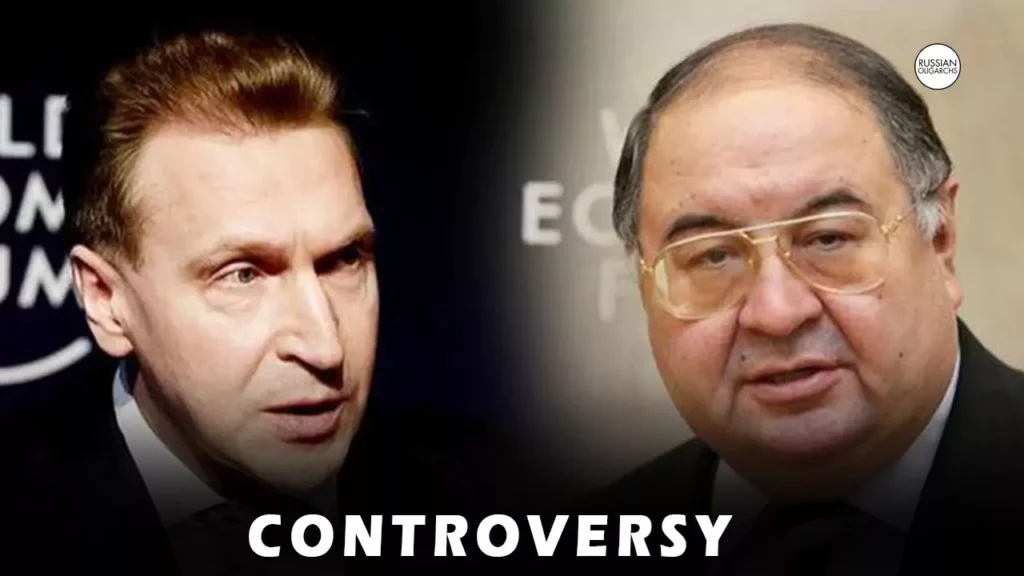
Igor Shuvalov, a prominent figure in Russian politics, has been at the center of various financial controversies, including offshore investments and loans. Here are some key details:
- The Shuvalov Affair: In 2012, Shuvalov faced allegations from notable Russian opposition figures, accusing him of accepting bribes and engaging in insider trading. These accusations also raised concerns about potential conflicts of interest, where he may have benefited from companies he was associated with as a government official. Shuvalov maintained that his family’s substantial wealth, estimated at over $200 million, had been acquired through legal and transparent means. Many of the controversies surrounding Igor Shuvalov have been countered or put into context by unnamed sources, often described as closely linked to him and his activities during the periods in question.
- U.S. Securities and Exchange Commission (SEC) Investigation: In December 2011, the SEC disclosed information related to Shuvalov’s involvement in deals to acquire assets in the United States, amounting to $319 million. It was also revealed that he had received a loan of $119 million for these transactions, carrying an exceptionally high-interest rate of 40% per year.
- Shuvalov’s Spouse Income: Olga Viktorovna Shuvalova, Igor Shuvalov’s wife, is a prominent business figure actively engaged in real estate transactions within the Skolkovo Innovation Center offshore business and the trading of shares in Russian raw materials companies. Her income over two years surpassed 1 billion roubles.
- Wealth and Extravagant Lifestyle: Igor Shuvalov ranks among the wealthiest members of the Russian government, with an income of 226,386,929 roubles in 2012. His estimated wealth stands at approximately $220 million. Notable assets include a $9.4 million apartment in Moscow, a pair of London apartments valued at $15.3 million, and a private jet worth £38 million, which he employs for transporting his wife’s corgis to dog shows across Europe.
Response to allegations and investigations
Igor Shuvalov has been at the center of various allegations and investigations concerning his financial activities. Here are his responses to these allegations:
- The Shuvalov Affair: Shuvalov has consistently denied any wrongdoing and emphasized that his family’s substantial wealth, estimated at over $200 million, was acquired through legal and transparent means. He enjoys the support of numerous current and former government officials.
- U.S. Securities and Exchange Commission (SEC) Investigation: Shuvalov’s legal representatives have contended that the allegations against him are biased and rely partly on unreliable information.
- Shuvalov’s Spouse Income: There is no publicly available information regarding Shuvalov’s response to allegations related to his spouse’s income.
- Wealth and Extravagant Lifestyle: Shuvalov has not refuted the ownership of a $9.4 million apartment in Moscow, a $15.3 million pair of London apartments, or a £38 million private jet, which he uses for the transportation of his wife’s corgis to dog shows throughout Europe.
Impact on his public image
Igor Shuvalov’s involvement in financial controversies has significantly impacted his public image in several ways:
- Close ties to Vladimir Putin: Shuvalov’s influence has always stemmed more from his long-standing relationship with Vladimir Putin, dating back to the early 1980s, than from his official position. This has led to speculation that he enjoys protection from Putin and other government officials, despite the controversies surrounding him.
- Investor Confidence: Shuvalov’s involvement in deals to acquire assets in the United States, along with a loan received at an extraordinarily high interest rate of 40% per annum, has rattled investor confidence. An investigation by the U.S. Securities and Exchange Commission (SEC) has raised concerns among investors.
- Criticism from Western Organizations and Governments: Shuvalov’s connections to various financial controversies, including the case involving Bill Browder, a former major investor in Russia, who accuses the Russian government of expropriating his firms and the murder of his lawyer, have drawn criticism from Western organizations and governments.
- Impact on Kazan’s Development: Despite these financial controversies, they have not had a direct impact on the success of the 27th World Summer Universiade and its role in driving development in Kazan.
- Perception of Corruption: Shuvalov’s involvement in these financial matters has contributed to a perception of corruption and potential conflicts of interest.
Despite these controversies, Shuvalov has maintained his position within the government.
Sanctions
Sanctions imposed on Shuvalov in relation to the Russian invasion of Ukraine
In March 2022, the UK imposed sanctions on Igor Shuvalov and Alisher Usmanov in response to Russia’s invasion of Ukraine. Shuvalov, a former deputy prime minister under Russian President Vladimir Putin, currently serves as the chairman of a Russian bank. The sanctions included freezing their assets and banning them from entering the UK. British citizens and businesses were also prohibited from engaging in any dealings with them.
The U.S. Department of the Treasury and the U.S. Department of State also applied sanctions to Shuvalov. In his role as chairman of VEB.RF, a state-owned development and investment organization, Shuvalov was identified as a close associate of Putin. These sanctions encompassed a complete freeze of his assets and a travel ban.
Shuvalov’s legal representatives argued that the allegations against him were one-sided and partly reliant on unreliable information. Through his lawyers, Shuvalov stated, “The allegations are biased and are based partly on unreliable information.
Implications of sanctions on his political career
Sanctions imposed on Igor Shuvalov due to the Russian invasion of Ukraine have significantly affected his political career. Here are some key ways in which these sanctions have had an impact:
- Asset Freeze and Travel Ban:
- Shuvalov’s assets were frozen, and he was prohibited from traveling to the UK. British citizens and businesses were also barred from engaging with him.
- The U.S. Department of Treasury and the U.S. Department of State imposed sanctions on Shuvalov, including a complete asset freeze, travel ban, and a block on his assets.
- Perception of Corruption:
- The sanctions have reinforced the perception of corruption and conflicts of interest associated with Shuvalov.
- Ties to Vladimir Putin:
- Shuvalov’s close ties to Vladimir Putin have been highlighted in the context of these sanctions.
- Criticism from Western Organizations and Governments:
- Western organizations and governments have criticized the sanctions imposed on Shuvalov.
- Impact on Kazan’s Development:
- The sanctions have not directly impacted the development of the 27th World Summer Universiade in Kazan.
Wealth and Lifestyle
Detailed information on Shuvalov’s wealth and assets
Igor Shuvalov’s finances have been a matter of public interest and scrutiny. Here’s a summary of the available information:
Income: In 2009, Shuvalov reported an annual income of around 6.5 million roubles, while his wife’s income was approximately 642 million roubles.
Real Estate: The Shuvalovs own several apartments, land plots with buildings, and seven cars. Additionally, they possess a house in Austria and an apartment in the UK. Shuvalov transferred his overseas real estate into a blind trust in 2011. Notably, Alexei Navalny, the incarcerated opposition leader, revealed that Shuvalov used a British Virgin Islands (BVI) shell company to acquire two adjacent apartments in central London, located in a building that once served as the headquarters of a British intelligence agency.
Offshore Involvement: Olga Viktorovna Shuvalova, Shuvalov’s wife, plays a significant role in the sale of real estate within the Skolkovo Innovation Center offshore business and trades shares of Russian raw materials companies. Her income exceeded 1 billion roubles over two years. Shuvalov’s family’s offshore dealings have garnered international media attention.
Wealth: According to a 2012 declaration posted on the Government of the Russian Federation’s website, Igor Shuvalov is considered the wealthiest member of the government, with an income of 226,386,929 roubles. In 2022, his personal fortune was estimated at $102 million.
Extravagant lifestyle and controversies surrounding it
Igor Shuvalov’s opulent lifestyle and associated controversies have drawn considerable attention and criticism. Here are the key aspects that have surfaced in public discourse:
- Real Estate Holdings:
- Shuvalov possesses a lavish £11.44 million apartment in London’s Whitehall.
- He also owns a house in Austria and a beachfront residence in Dubai.
- Involvement in Offshore Transactions:
- Shuvalov’s wife, Olga Viktorovna Shuvalova, plays a significant role in the real estate sector within the Skolkovo Innovation Center’s offshore business. She also engages in trading shares of Russian raw materials companies. Her earnings over two years exceeded 1 billion roubles.
- Shuvalov and his family’s offshore financial activities have gained international media attention.
- Extravagant Expenditures:
- Shuvalov has been known to own a £38 million private jet, which he uses for transporting his wife’s corgis to dog shows across Europe.
- Reports suggest he has rented a castle in Austria.
- These extravagant expenses have faced criticism from opposition figures and anti-corruption activists.
- Wealth Assessment:
- Shuvalov’s estimated wealth is around $220 million, making him one of the wealthiest members of the Russian government.
Personal Life
Shuvalov’s family, including his wife Olga and their children
Igor Shuvalov is married to Olga Viktorovna Shuvalova, and they have two sons and two daughters. Olga Shuvalova is a prominent business figure involved in real estate sales within the Skolkovo Innovation Center offshore business and trading shares in Russian raw materials companies. Her income exceeded 1 billion roubles over two years. The Shuvalov family’s assets include multiple apartments, land plots with buildings, and seven cars. Additionally, they own a house in Austria and an apartment in the UK.
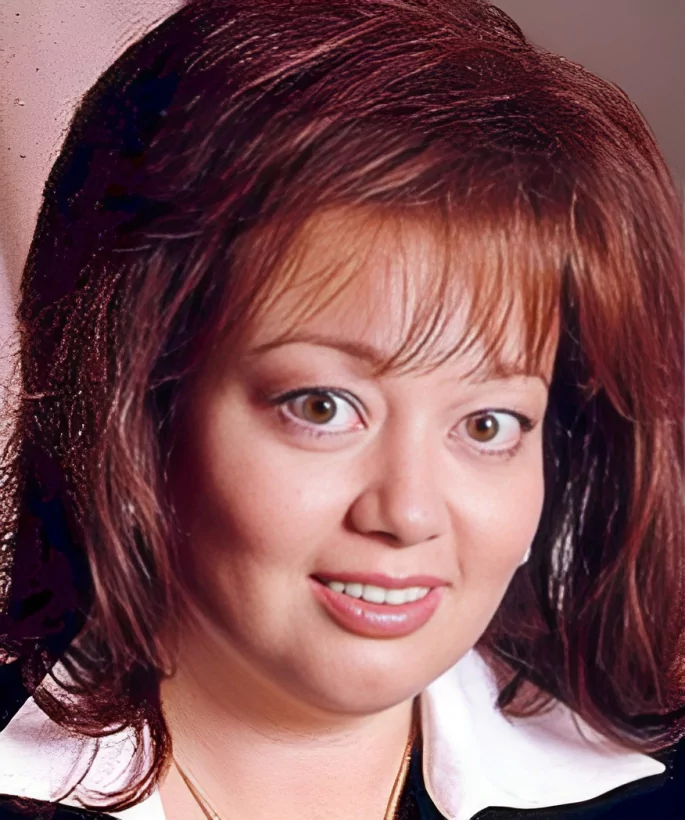
Olga Shuvalova hails from the Dolgorukov family, a distinguished Russian noble lineage. The Shuvalov family, documented since the 16th century, also has noble roots. It gained prominence during Empress Elizabeth’s reign and boasts notable members like Ivan Ivanovich Shuvalov, known for his association with Empress Elizabeth and support for the Russian Enlightenment.
The wealth and assets of the Shuvalov family have faced controversy and scrutiny, with allegations of corruption and conflicts of interest.
Implications of sanctions on his political career
Sanctions imposed on Igor Shuvalov due to the Russian invasion of Ukraine have significantly affected his political career. Here are the key ways in which these sanctions have had an impact:
- Asset Freeze and Travel Ban:
- Shuvalov’s assets were frozen, and he was prohibited from traveling to the UK. British citizens and businesses were barred from engaging with him.
- The US Department of the Treasury and the US Department of State also imposed sanctions on Shuvalov, including a complete asset freeze, a travel ban, and a full block on his assets.
- Perception of Corruption:
- These sanctions have further reinforced the perception of corruption and conflicts of interest surrounding Shuvalov.
- Ties to Vladimir Putin:
- Shuvalov’s close connections to Vladimir Putin have been prominently highlighted in the context of these sanctions.
- Criticism from Western Entities:
- The sanctions have garnered criticism from Western organizations and governments.
- Impact on Kazan’s Development:
- Notably, the sanctions have not directly impacted the 27th World Summer Universiade’s effect on Kazan’s development.
Awards and Honors
Igor Shuvalov has received numerous awards and recognitions for his notable contributions to the state. Here are some key honors and distinctions based on search results:
- Order for Service to the Republic of Tatarstan: In recognition of his role in successfully organizing the 27th World Summer Universiade, Igor Shuvalov was honored with the Order for Service to the Republic of Tatarstan.
- Honorary Citizen of the City of Kazan: Shuvalov was granted the title of Honorary Citizen of Kazan, acknowledging his efforts in promoting economic development, enhancing the city’s reputation, and strengthening its image both within Russia and on the international stage.
- Stolypin Medal (1st Degree): Igor Shuvalov was awarded the prestigious Stolypin Medal, recognizing his outstanding contributions.
- Other Distinctions: Igor Shuvalov has received various other prestigious orders and titles, including “For Services to the Fatherland” (2nd, 3rd, and 4th degrees), “Honor,” “Friendship of Peoples (Belarus),” “Alexander Nevsky,” and “For Services to the Republic of Tatarstan.”
Conclusion
Igor Shuvalov, a prominent Russian politician, has played various key roles in the government since the late 1990s. His most notable position was as First Deputy Prime Minister from 2008 to 2018, following which he assumed his current role as Chairman of the state development corporation, Vnesheconombank (VEB.RF). Shuvalov’s close association with Vladimir Putin and his involvement in the Russian oligarchy have drawn considerable attention and scrutiny.
The international media has extensively covered Shuvalov’s wealth, lavish lifestyle, private fortune, and offshore financial activities. Allegations of bribery and profiting from insider trading have been leveled against him, and his family’s substantial wealth is estimated to exceed $200 million.
Despite the controversies surrounding him, Shuvalov has received numerous awards and recognition for his contributions to the state. These ongoing controversies have cast a shadow of corruption and conflicts of interest over his career. As of the knowledge cutoff date, Shuvalov continues to serve as Chairman of VEB.RF.




